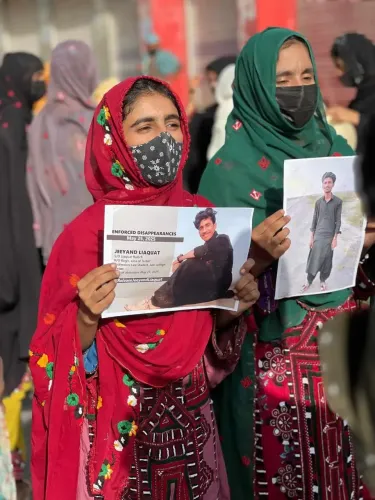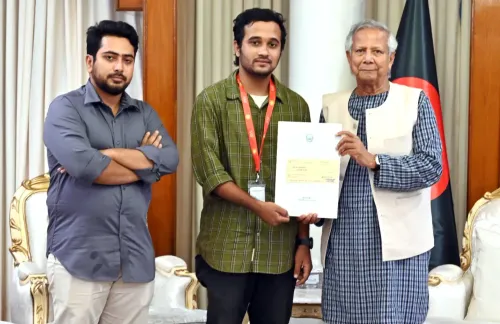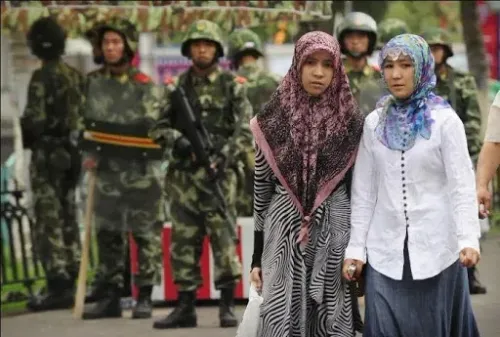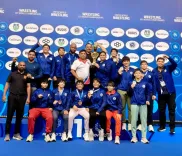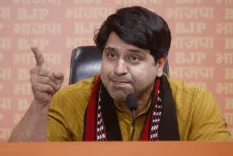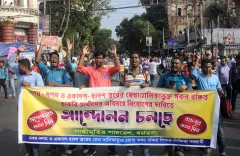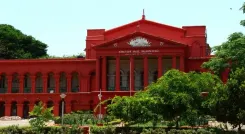Is South Korea Witnessing a Record Turnout in Early Voting for the Presidential Election?
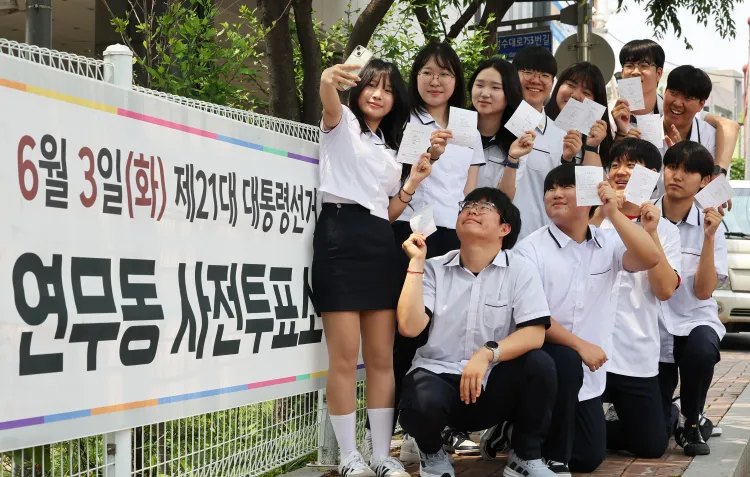
Synopsis
Key Takeaways
- 19.58 percent of voters participated in early voting, a new record.
- Early voting began at 3,568 polling stations.
- The election follows the ousting of former President Yoon Suk Yeol.
- Key candidates include Lee Jae-myung and Kim Moon-soo.
- Voting is seen as a critical exercise of democracy.
Seoul, May 29 (NationPress) A historic milestone was reached as 19.58 percent of South Korean voters participated in early voting on Thursday, marking the first day of opportunities to cast ballots in the forthcoming presidential election. This election aims to find a successor to the ousted former President Yoon Suk Yeol, who was removed due to his unsuccessful martial law attempts.
The two-day early voting commenced at 3,568 polling stations across the nation. The official election is set for next Tuesday.
According to the National Election Commission, over 8.69 million of the 44,391,871 registered voters, equivalent to 19.58 percent, exercised their right to vote from 6 a.m. to 6 p.m. on Thursday.
This turnout is the highest recorded on the first day since the introduction of nationwide early voting in 2014, as reported by Yonhap news agency.
The turnout figure exceeds the 17.57 percent turnout during the previous presidential election in 2022 by 2.01 percentage points.
Democratic Party (DP) candidate Lee Jae-myung voted in Seoul, while Kim Moon-soo, the People Power Party (PPP) candidate, cast his vote in Incheon. Other candidates, including Lee Jun-seok from the minor conservative New Reform Party (NRP) and Kwon Young-kook from the minor Democratic Labor Party, also participated in the voting.
After voting, Lee emphasized, "The insurrection can only be truly overcome through the active participation of our citizens in the election," highlighting that voting is a powerful exercise of individual sovereignty. He mentioned that voting alongside young voters symbolizes his aspiration for South Korea to "return to an era led by the youth."
Post-voting, Lee continued his campaign in several districts in Seoul, including Gangdong, Songpa, Seocho, and Gwanak, which are crucial battlegrounds given that half of the country's population resides in the capital area.
Meanwhile, Kim voted with his daughter in Incheon's Gyeyang district, a region represented by his DP rival. He cautioned, "If you don't vote, there's no hope for this country," asserting that voting for his DP opponent would "take away freedom."
The PPP's campaign committee noted that Kim's choice to vote in his rival's constituency reflects his commitment to "turn the tide" in Lee's political stronghold.
During his campaign, Kim also visited Freedom Park in Incheon and paid homage to the statue of Gen. Douglas MacArthur, who played a pivotal role in the Incheon Landing Operation during the Korean War.
He urged voters to participate in the early voting phase or on Election Day.
Lee from the NRP cast his early vote in Dongtan, his local constituency, before addressing university students and the youth in other districts like Pangyo 2nd Techno Valley in Seongnam, just south of Seoul. Kwon voted in Yeosu.
Currently, six candidates are in the race for the presidential office. A recent poll released on Wednesday indicated that DP's Lee leads with 49.2 percent support, followed by PPP's Kim at 36.8 percent. Lee Jun-seok stands in third place with 10.3 percent.
The next President will begin their single five-year term immediately after the election.

